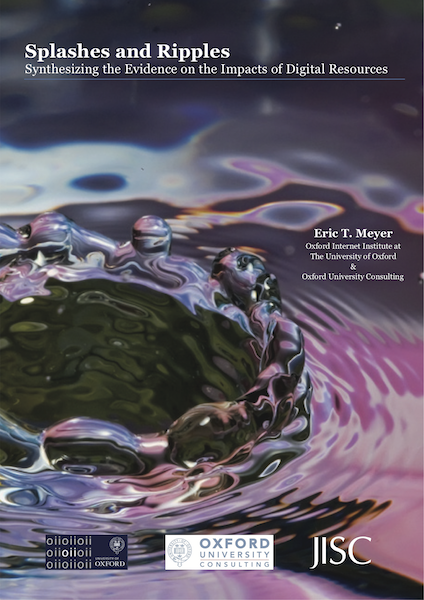
Professor Eric T. Meyer
Senior Fellow
Eric T. Meyer is a Senior Fellow of the Oxford Internet Institute. His research looks at the changing nature of knowledge creation in science, medicine, social science, arts, and humanities as technology is embedded in everyday practices.
